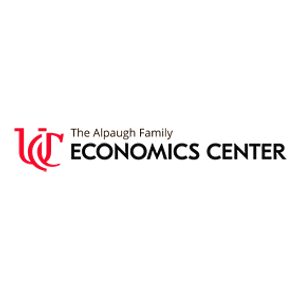Looking at the Economics Center work through a new lens
Two years ago, one of the children participating in one of our student events was telling her teacher how much fun she had and how excited she was to interact with one of our business volunteers. As she was leaving, the third grader turned to her teacher and said, “That lady was so nice to me. And she was white!” My ideas about the racial inequalities I can see were slammed up against this little girl’s reality. And it broke my heart.
Most of the students we work with in our programs are children of color. We see that these children are expected to overcome greater challenges with fewer resources than white children. We see their teachers trying to compensate for as many of these challenges as they can—again, with fewer resources in their classrooms. We see. But we cannot know.
The confluence of Covid-19, the death of George Floyd, and the subsequent demonstrations shine a bright, hot light on the systemic racial inequalities that have been hiding in plain sight for some, and are a way of life for too many. Individually, it is a time of deep reflection, an examination of the “content of our characters”. As the leader of this nonprofit, it is a time for me to ask the question, What does the mission of the Economics Center look like through the lens of social justice?
At its core, our mission is to help people make decisions. In research, we provide high-level analyses that guide business, government, and nonprofit leaders in their decision-making processes. In education, we teach K-12 children how to weigh costs and benefits, recognize opportunity costs, and that investing in themselves is an investment worth making.
Over the last several years, we have quietly been doing work that uncovers and closes the gaps in our communities of color caused by systemic racial bias.
This work includes our #WorkThatMatters initiative, focusing on providing high-level analyses (some of it pro bono) to nonprofits who work in the areas of gender, racial, and economic justice. These organizations include Dohn High School, the Women’s Fund of Cincinnati, Cornerstone Corporation for Shared Equity, and Changing Gears.
This focus also is evident in our education programs, where the common thread is teaching children how to identify and assess options, including recognizing the opportunity costs of their choices. It is evident in our emphasis on human capital development, setting goals, and preparing all children to become full members of our economy.
While we have been quietly incorporating social justice into our work, now is the time to be louder.
We will, as funding allows, continue the #WorkThatMatters and focus on awarding pro bono analyses to those nonprofits dedicated to racial disparities.
Given the systemic racial barriers that exist, we recommit to providing high quality economic/financial education to all students, but particularly for children of color to maximize their access to opportunities to build wealth and fully participate in the economy.
We will reaffirm an organizational culture that values and seeks out diversity, inclusion, and equity.
We will take advantage of opportunities to learn and grow, making them a part of our own professional development.
We will be more purposeful in our interactions with the children in our programs, showing by example, that they are fully valued and respected.
We will include teacher professional development workshops that explicitly address strategies and resources teachers can use to discuss issues of racism and its relationship to economic and financial literacy.
We will continue to explore the opportunity gaps (as opposed to achievement gaps) that exist in our black and brown communities to offer our research and education expertise.
We will be driven by our commitment to our community, to its future, and to supporting those in positions of leadership to make it better.
We believe that just because we cannot fully know does not mean there is no hope. While my heart still breaks when I think of what experiences led to our young student’s surprise that a white woman would be nice to her, the fact remains that this positive interaction occurred, and it mattered to her. We are committed to making these small differences, as well as playing our role in affecting larger change.
Dr. Julie Heath
Executive Director/CEO
Alpaugh Family Economics Center










